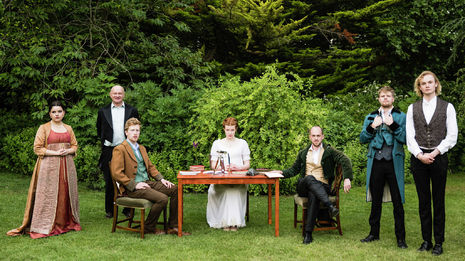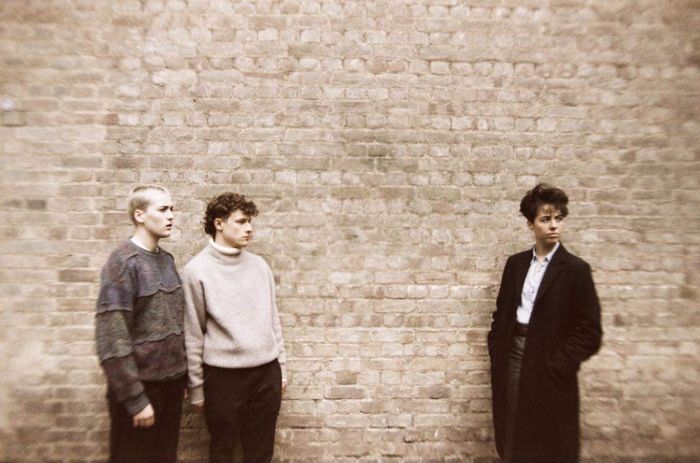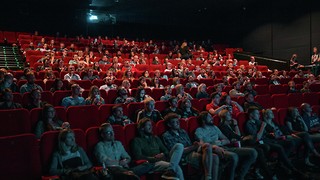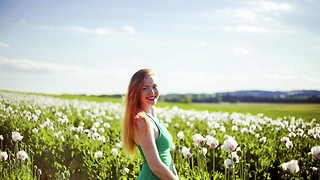‘Tock tick goes the universe’: Arcadia
Stoppard stuns in the Trinity College Fellows’ garden

Turning back the clock to place the hands of the past into those of the present for a waltz with time, Tom Stoppard’s Arcadia charms audiences of the Trinity College Fellows’ Garden this week with a vibrant subtlety.
Exploring nature and reason, love and learning, Arcadia is set in both the nineteenth century and the ‘present’, with the continuity of Derbyshire country house, Sidley Park, acting as what the characters hope to be a window into the known or the unknown, the changed or the unchangeable. Directed by Olivia Krauze, the ways in which the actors interacted with both the unique space of the gardens and the closeness of the audience created an engaging theatrical experience, and the outdoor environment was carefully considered from a number of intriguing angles. With such proximity to the audience but also performing in such an expanse, the achievement of such subtly expressive portrayals alongside such emotional charge or determination is a testament to each of the actors in this production.
“The dappled boundaries of trees act as curtains that only partially break the present of the stage from the past of the last scene”
As pupil and tutor, Thomasina, played by Maia von Malaisé, and Septimus, played by William Freeman, seem to revolve around these very descriptors within the play, and von Malaisé and Freeman effectively convey this sense of similarity in their simultaneously contrasting forms of frustration and self-confidence. Krauze seems to have been particularly successful in creating these moments of juxtaposing ease and tension between pairs throughout the play, culminating in both comedy and seriousness in the interactions between scholars performed by Matthew Sargent, playing Bernard, and Hannah Jarvis, playing Claire Schultz.
The actors also managed with ease the extended passages of dialogue in the play, with Bella Rew, playing Valentine, effectively expressing the considerations and complications that can trap individuals who seek to make a formula of the unpredictable. The comedic elements of the play run through the narrative in its underlying concerns as well as on the surface of some excellent performances, and the variety in tone and pitch in the dialogue, particularly in light of the outdoor space, was highly impressive. Dounia El Barhdadi, playing Lady Croom, was hilarious also in the confidence of a character met with rolling eyes, and the high level of engagement between the actors in each scene meant that the Trinity Fellows’ Garden really became the stage for what seemed larger than the microcosm of a country house.
“The Trinity Fellows’ Garden really became the stage for what seemed larger than the microcosm of a country house”
It is clear that the use of space, light and sound has been intricately considered, with the simplicity of Set Designer Adam Dumbleton’s translatable backdrop conversing well with what becomes a natural stage, as the dappled boundaries of trees act as curtains that only partially break the present of the stage from the past of the last scene. As the play continues and the evening light fades gently with the development of the narrative, the use of artificial lighting was very effective, owing to Technical Director Filip Ayazi, and offers subtle highlights and shadows to the actors’ expressions as their characters come to personify both confidence and insecurity.
With live music from well considered angles, Musical Director Natalie Manning has created an effective dialogue with the narrative of the play itself, acting almost as another voice within the past and present conversations which murmur beneath the surface of what seems to be the present. Acting as an essential mode of timekeeping in the play, which increasingly becomes not confused but interchanging, Costume Designer Aoife Pallister Begadon’s detail and colourful contribution to this overall sense of coherence in an otherwise open and undefined space is a testament to the successful collaboration of the creative team.
Both stepping and gliding between the past and the present, Stoppard’s characters try to piece together what is shattered by time, only to find in its fragments reflections and missing pieces. Asserting that ‘the future is disorder’, Arcadia takes the open air as a stage for reasoning with reason, for challenging the perceived openness of exploration, and finding a new mode of keeping time in the world of a clock that only goes ‘tock tick’.
 News / Tompkins Table 2025: Trinity widens gap on Christ’s19 August 2025
News / Tompkins Table 2025: Trinity widens gap on Christ’s19 August 2025 Comment / A plague on your new-build houses18 August 2025
Comment / A plague on your new-build houses18 August 2025 News / Pro-Palestine activists spray-paint Barclays Eagle Labs18 August 2025
News / Pro-Palestine activists spray-paint Barclays Eagle Labs18 August 2025 News / Pro-Palestine activists urge new Chancellor to ‘condemn Israel’20 August 2025
News / Pro-Palestine activists urge new Chancellor to ‘condemn Israel’20 August 2025 News / Trinity sells O2 Arena lease for £90m12 August 2025
News / Trinity sells O2 Arena lease for £90m12 August 2025










